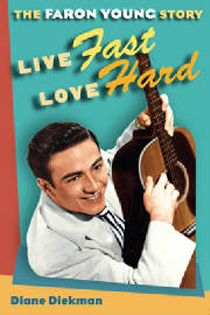Top 10 New Year's Resolutions for Writers:
•Make time to write.
•Overcome writer's block.
•Complete an unfinished work.
•Read more.
•Keep a journal.
•Work on writing space.
•Write a novel.
•Submit work.
•Try a new genre or art form.
•Be easier on yourself.
Get out of the rut. Fantacize more. That should be your resolution!!! Your only resolution. (Note photo of Michelle Pfeiffer and Rupert Friend in a movie based on a Collette short story.)
See yourself. Visualize yourself as this successful writer. The one you WANT TO BE! Then take three steps that brings you closer to that fantasy becoming a reality.
You know -- once upon a time I lived in an old falling down house that was a money pit and constantly needed fixing up. We worked on it, threw money into it, and dreamed of a new house with a pond and and all of the trimmings. The day came when we took the step and turned out dream house into a reality. We sold the money pit, hired a builder, settled on a plan, a budget, a pedestal sink, and a two-acre pond. The house went from fantasy to reality.
Why not with a writing career?
I had a dream the other day that I was traveling to book signings, tracking down research, calling my assistant to deliver more books to my signing, and was writing, really writing something I was proud of and a bit surprised that it came from my brain! My name was entering conversations of people I had never met but who felt they knew me from my writings. And our financial woes had come to an end. I even hired someone to repaint the house and get rid of that sickly green that covers every wall.
The morning I awoke from that dream I had to check the walls -- just to make sure it was a dream. Yep, still green. But the dream was that real.
At that point I realized that I had actually already begun taking steps toward making the dream come true. I've been pursuing my interest in fabric art by growing a blog. I named it after what I hope will be a title of one of my books. I'm actually putting together a platform for that first book. While I was enjoying the journey -- enjoying finding beautiful fabric art and talented artists to share with like minded fabric lovers -- I had found people who just might also promote my book or at least read it.
Look at what you did this year and see how it is going to help you reach your goal. And then put together that list of New Year's Resolutions with an eye to actually making something specific happen.
If your goal is to write for the New Yorker then submit something to them again, and again and again. Read the New Yorker or Ploughshares or Glimmer Train or Newsweek -- whatever is your target market. See what they publish and then give them something that you know they'll like. You know because you have read the market and know the market.
Take a class. If nothing else you'll know that you're better at this writing business than you thought you were!
Even if you are not setting words on a page, find a way to grow your dream. A blog that helps you build a platform. A group of essays that you can self publish if necessary that your family will love. It will teach you to complete a longer project.
Give yourself permission to fail. Seek failure. Try something so outrageous that you know you will never be able to pull it off. Then give it all you have. Play with it. You expect to fail so don't worry.
Learn a new language. It might open new doors, give you a different perspective, or help you broaden your horizons -- maybe if you learn French, you'll actually take that trip to Paris you've been dreaming about.
Read more nonfiction. Watch more movies. Netflix movies on demand and instant downloads. It may seem like escapism but it is also your chance to indulge your fantasies at the same time.
Play! Make time for play!
Change your name. Your writing name. Write under an alias and then fit your writer to that name. Dawn Goldsmith becomes Don Carlos or Emily Dickinson or Jane Austen or Anna Quinlan or Collette! (See photo of Collette)
Don't think of yourself as a 'writer' but as a WRITER or better yet -- an ARTIST!
Just give yourself permission to be that person that frequents your dreams. Well, unless it is a Jack the Ripper kind of guy -- then add "See psychiatrist" to your DO IMMEDIATELY list. But even then, take notes.





















































